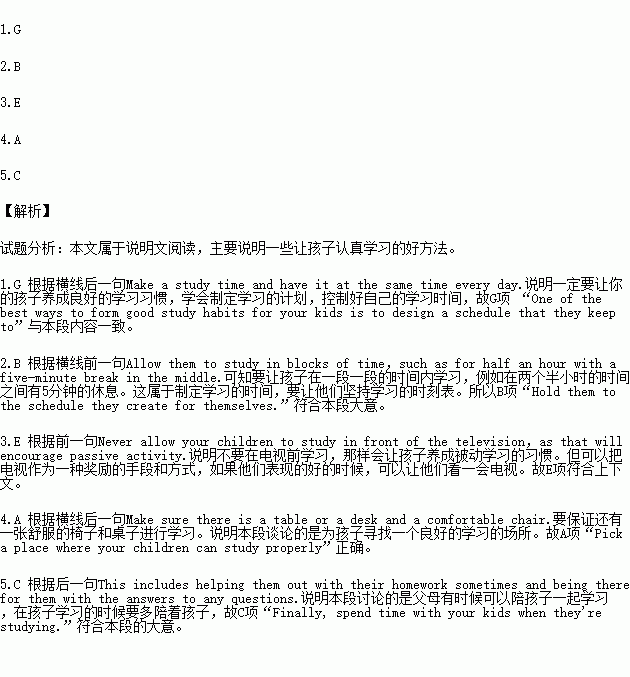题目内容
根据短文内容,从短文后的选项中选出能填入空白处的最佳选项。选项中有两项为多余选项。
Getting your children to study can be a little like getting them to eat their vegetables.
1. Make a study time and have it at the same time every day. This will help your kids to learn to schedule their day and will give them a sense of control over how they spend their time.
Allow them to study in blocks of time,such as for half an hour with a five-minute break in the middle.
2.Ideal (理想的) study times are after dinner or right after school before dinner.
Never allow your children to study in front of the television,as that will encourage passive activity. 3. 。
You’ll also need to help your kids find the right place to study. After you’ve set up a good study time for little learners,set up a good place where they can get those creative juices flowing.
4. Make sure there is a table or a desk and a comfortable chair.
5. This includes helping them out with their homework sometimes and being there for them with the answers to any questions. The input you give your children during study periods will help form a bond and help make studying enjoyable.
A. Pick a place where your children can study properly.
B. Hold them to the schedule they create for themselves.
C. Finally, spend time with your kids when they're studying.
D. Keep the atmosphere light and offer lots of encouragement, too.
E. Instead,use TV as a treat or a reward when the homework is completed.
F. Try to stop this bad habit by offering some sort of reward.
G. One of the best ways to form good study habits for your kids is to design a schedule that they keep to.


 ),在其下面写出该加的词。
),在其下面写出该加的词。